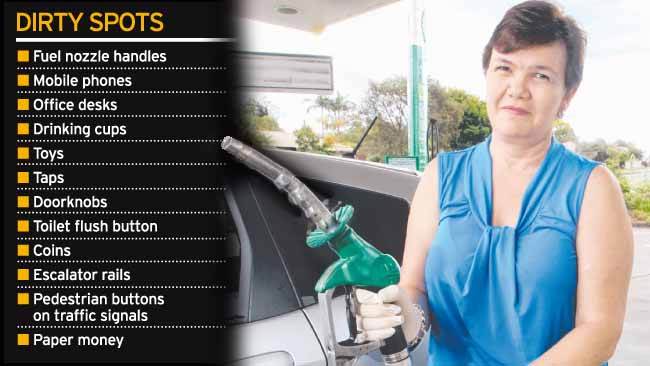It seems the main ways of acquiring a transmissible illness is by either someone coughing into the air you are about the breathe, or by touching a contaminated surface with your hand and then your hand touches your mouth.
Because people generally wouldn’t touch their mouth with a glove, wearing one out in public might be a good precautionary measure, especially now that antibiotics are looking like they are no longer the miracle cure.
However it is not that easy. It is awkward to handle phones, keys, coins etc with gloves. The thinnest gloves are latex and not suited to being out and about in public. In fact, they could scare folk away. And most fashionable gloves are too cumbersome.
I have found these and will give them a go:
Ansell HyFlex 11-618
Not fashionable, but not creepy either. This isn’t my first choice, but at $80 AUD for a pack of 12, perhaps worth a go.
The multipurpose glove has a palm of coated nylon/polyurethane and an elasticised knitwrist. It is 20% lighter in weight than the manufacturer’s other equivalent products, but provides light mechanical protection.
My first choice is the Tough Gloves Ultra™ Thin Patrol Cabretta – the same product that police use, the same that TV character Dexter uses. $48 in the USA. They suggest you get the fit right, and tight.

